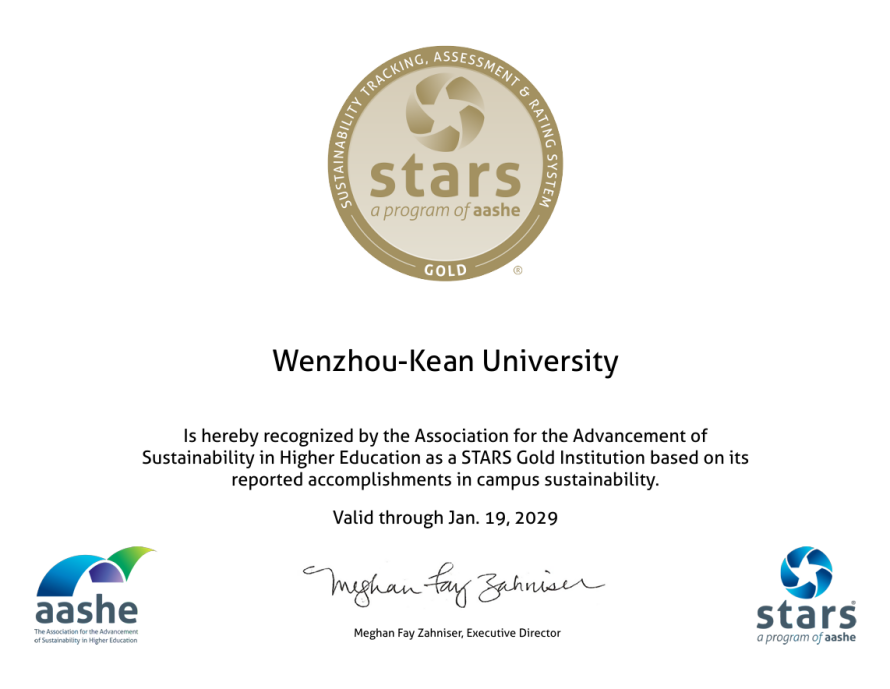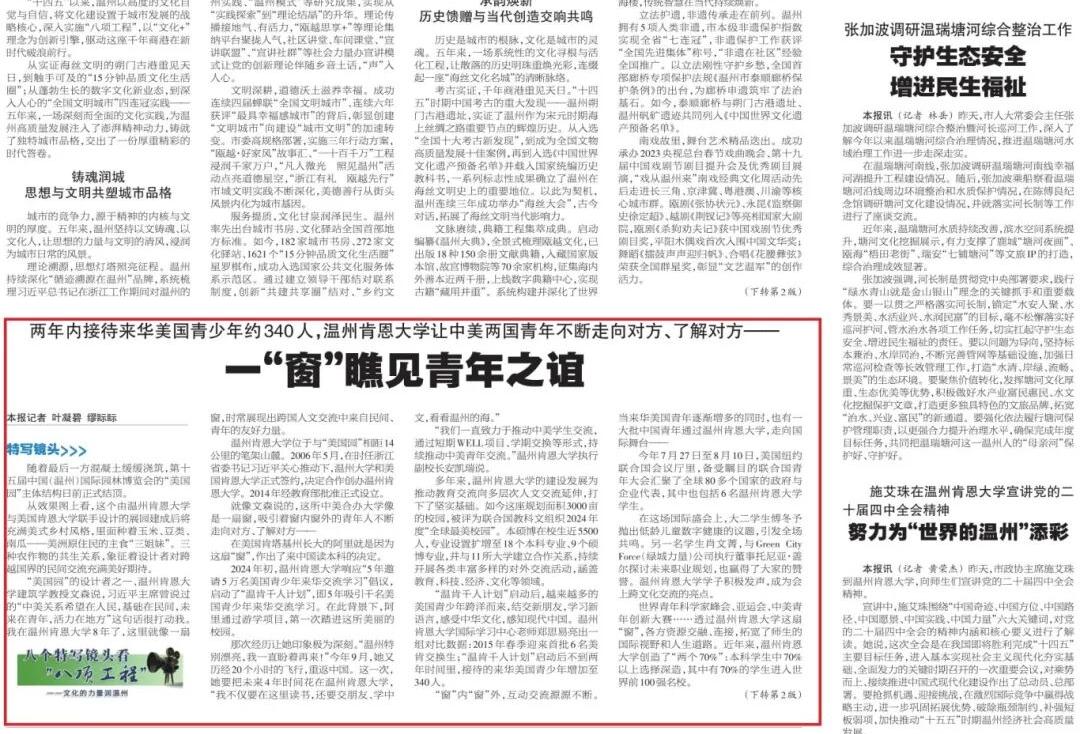Thoughts on Life and Work during Quarantine——WKU English Teacher Prof. Virginia Parker
Recently, English teacher Prof. Virginia Parker has completed 14 days of quarantine and walked out of her apartment.
After having a holiday in South Africa, followed by a few weeks in Thailand, she has completed her home isolation in accordance with regulations. The city of Wenzhou has gradually reverted to its normal rhythm. It didn’t come easily. She has some thoughts on work and life when recalling her journey.
At the beginning of her trip, COVID-19 outbreak was in China. The school took decisive measures to implement online instruction based on the spreading of the epidemic, and this was effective on February 24th. Two weeks before that, Virginia, like other faculties, started urgent preparations: adapting to Blackboard teaching platform, preparing the syllabus, and sorting out the key points … For the first two weeks, it was not easy for her, being far away from home, but she didn’t daunt in front of hardship, instead, she did her best to teach courses. The semester is now in its seventh week of online teaching.
“Since the outbreak of epidemic in China in late January, I have been continuously concerning the development of the epidemic. I also checked the latest infected cases every day. Seeing that the epidemic in China has improved, but the epidemic overseas has suddenly spread rapidly. There were overwhelming epidemic reports on media making me even more anxious. We were in Thailand for two weeks, and if we had remained there, we could have faced problems, not only with the disease, but with living costs as well. Moreover, we still have a cat in Wenzhou. These multiple pressures made me even more anxious. ”However, this tension was relieved after her returning to Wenzhou.
Although it might be inconvenient during the quarantine, she also understands the purpose of school quarantine. Seeing that the situation was out of control overseas, she also affirmed the necessity of decisive epidemic prevention and control in China.
She has relatives back her hometown Canada, who are health care workers, she is very concerned about their safety. Fortunately, Canada has taken protections since the outbreak, so she believes they will eventually be safe. When it comes to quarantine life and work, she doesn’t worry too much. Occasionally, doing Yoga at home, watching videos, and playing with her kitty, and she is also learning Chinese online through the WKU Chinese Curriculum Center… all these greatly relieved her.
Now, she has 3 online courses per week, which are mainly on Monday and Tuesday. At other times, she needs to prepare lessons, correct homework, and do research. Compared with traditional courses, the workload is not smaller, because there are several forms of homework on Blackboard. In addition to delivering online lectures, students need to participate in group discussions. Opinions are required to be published at least 5 times per person in separated three days per week, and all those opinions require to be in standardized format and have specific reference. She also needs to respond to students’ answers timely.
This is also her favorite part, because from the students’ answers, she can tell whether students really have engaged in her class and whether they have understood everything; in addition, she could find some interesting answers, which inspired her a lot.
After a period of adaptation and adjustment, both students and teachers have better adapted to the teaching platform. Her students have also made significant progress in studies, which makes her happy.
She encourages students to keep up and try their best to ensure their participation in the teacher’s live lessons and live in an organized and regular schedule, which will greatly benefit learning and life as well.
Speaking of this, she also mentioned some of her regrets. Online classes often do not have fixed working hours. For example, on weekends and evenings, when students send messages, she will reply, and often she will review the students’ homework on weekends. So it can be challenging sometimes even for her to maintain a regular life. In addition, when giving traditional class, she is more flexible in movement. She enjoys the pleasure of communicating directly with students.
Finally, Virginia sends best wishes to her students and all those affected by the epidemic. “Remember, you are not alone. We are in the same boat and will go through this crisis together. The epidemic won’t last forever. If we take all this from a more distant perspective, such as a few years or even decades later, this will only be a tiny fragment of memory. “
- Wenzhou-Kean University Spearheading Sustainability in Higher Education in Asia and in China, Awarded the AASHE STARS Gold-Certified in Sustainability

- Media Report | Wenzhou Daily: A Window into Friendship Between Chinese and U.S. Youths Wenzhou-Kean University Welcomes 340 Young Americans in Two Years

- WKU Student wins first prize in a national English speech contest: What is his answer to the value of boredom?


